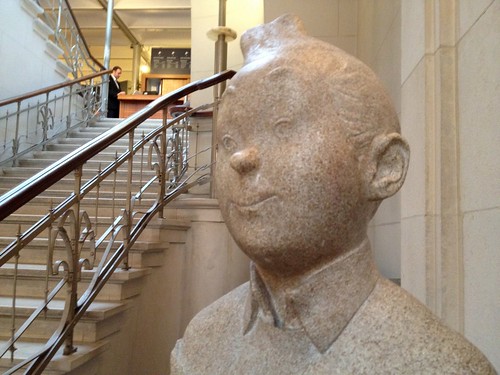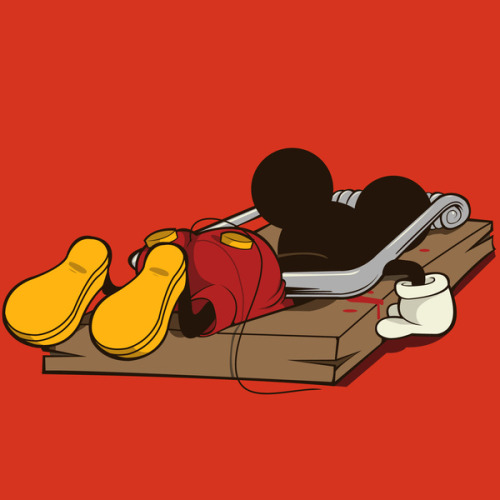A Note from Brussels

Granite bust of Tintin at the Comic Book Centre
After a week of living at an airport hotel in Brussels, I finally made it into the city. This last week has been a endless loop of breakfasts in the hotel lobby, taxis to the office, lunch in the canteen, locked in a meeting room, and churning through half-baked design options. It felt great to just sleep in, take a light breakfast and grab the train into the city centre. I'm here with my manager, Martin and while I took in a visit to the slightly rundown Comic Book Centre he found the only English Pub in Brussels to watch an FA Cup match.
“The last time I was in Brussels was… twenty-two years ago.”We had a funny moment when we discovered the Grand Place (by sort of ambling towards where we thought it was) but were distracted by some dog wearing glasses. The joke was we were so easily amused by a dog wearing glasses that we didn't really notice the fantastic architecture around us. Brussels isn't so big that you can't see a lot by foot so it was fairly easy to walk from the central station to the Grand Place, and from there to a MediaMarkt (like a Belgian FutureShop) to pick up a couple of things.
The last time I was in Brussels was for a weekend in the summer of 1990. Twenty-two years ago. The disappointment with the Comic Book Centre today was that it was pretty much the same then. This is like one of the world capitals for comic books and this place is in a nicely kept building but the exhibits were exactly as I remember them. Pretty corny and outdated. In that time there has been a new museum built outside of Brussels just to commemorate Tintin's creator Hergé. Unfortunately I doubt I'll get a chance to set aside the half day you'd need to get there so Sunday I'll probably just head into town in the afternoon and check out a gallery or two. I'm sure a cone of frites will feature in the my plans too.
I think a couple of days of taking in the city will make the rest of the week go a lot faster. It's nice to take a trip and all but you pretty quickly can get home sick (not to mention absolutely fat as I haven't exercised anything but my mouth eating junk pretty much since I've been here). It'll be nice to get back to a real winter city.
Labels: travel






